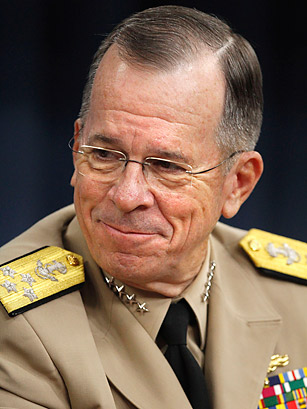
Admiral Mike Mullen may be the most influential Chairman of the Joint Chiefs of Staff in history. It didn't look that way when he was nominated in 2007 as the U.S. was struggling with intractable conflicts in Afghanistan and Iraq, but he expertly shepherded the two wars for the President who started them and the one who will end them. He opened the final chapter of the war in Iraq, and set in motion the withdrawal from Afghanistan. A Naval Surface Warfare Officer, perhaps the most conventional of all U.S. military career paths, Mullen pushed for increased use of Special Operations forces, allowing their commanders to thrive, which played a large role in the killing of Osama bin Laden. Yet Mullen, who retired in October, will be remembered for the changes he fought for within the military, which is an institution as well as a fighting force. He spoke publicly and strongly for the repeal of "Don't ask, don't tell," saying it forced troops to live a lie — the height of dishonor. The new policy allowing gay and lesbian service members to serve openly for the first time in U.S. history represents the largest transformation in the military since racial integration under Harry Truman. Mullen has been a key influence in shaping an American military that will in turn shape the rest of this century.